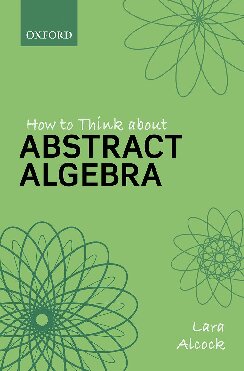

Most ebook files are in PDF format, so you can easily read them using various software such as Foxit Reader or directly on the Google Chrome browser.
Some ebook files are released by publishers in other formats such as .awz, .mobi, .epub, .fb2, etc. You may need to install specific software to read these formats on mobile/PC, such as Calibre.
Please read the tutorial at this link. https://ebooknice.com/page/post?id=faq
We offer FREE conversion to the popular formats you request; however, this may take some time. Therefore, right after payment, please email us, and we will try to provide the service as quickly as possible.
For some exceptional file formats or broken links (if any), please refrain from opening any disputes. Instead, email us first, and we will try to assist within a maximum of 6 hours.
EbookNice Team

Status:
Available0.0
0 reviewsHow to Think about Abstract Algebra provides an engaging and readable introduction to its subject, which encompasses group theory and ring theory. Abstract Algebra is central in most undergraduate mathematics degrees, and it captures regularities that appear across diverse mathematical structures - many people find it beautiful for this reason. But its abstraction can make its central ideas hard to grasp, and even the best students might find that they can follow some of the reasoning without really understanding what it is all about.
This book aims to solve that problem. It is not like other Abstract Algebra texts and is not a textbook containing standard content. Rather, it is designed to be read before starting an Abstract Algebra course, or as a companion text once a course has begun. It builds up key information on five topics: binary operations, groups, quotient groups, isomorphisms and homomorphisms, and rings. It provides numerous examples, tables and diagrams, and its explanations are informed by research in mathematics education.
The book also provides study advice focused on the skills that students need in order to learn successfully in their own Abstract Algebra courses. It explains how to interact productively with axioms, definitions, theorems and proofs, and how research in psychology should inform our beliefs about effective learning.